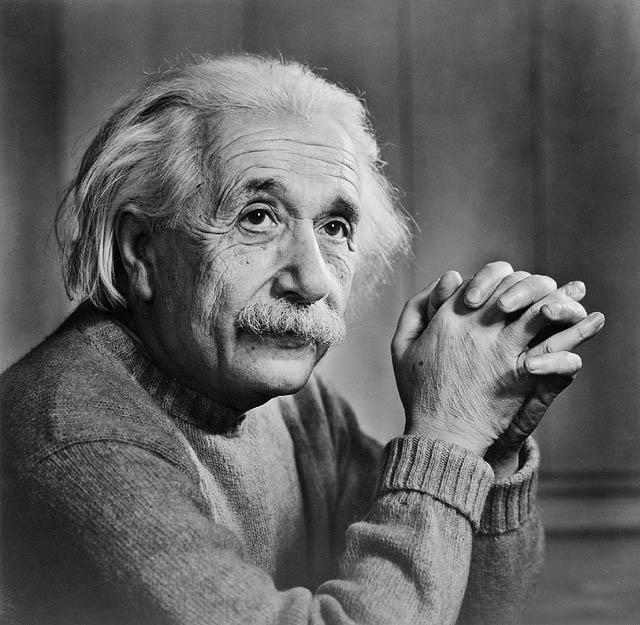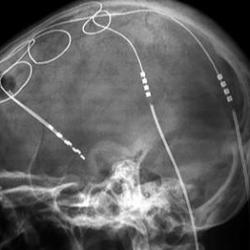I had the opportunity to see a screening of the soon-to-be-released TV series on Albert Einstein titled Genius. The first episode did not go into great detail about Einstein’s scientific discoveries (I have read that the series as a whole is not a science documentary). However, the episode did seek to shed light on Einstein’s personal and family life, and the cultural and political context in which Einstein lived and engaged in scientific inquiry. One of the questions that I came away asking is: How often do we use science and religion for political and racialized agendas rather than aesthetic aims?
Before addressing this question, it is important to indicate that there have been numerous and disparate attempts at presenting Einstein’s view of religion. Was he an atheist according to whom references to ‘God’ served as a metaphor? Was he a pantheist, a deist, a monotheist? (Here are but a few treatments: refer here, here, here, here, and here; one of Einstein’s own reflections on religion is found here). The debate will likely continue indefinitely. After all, who wouldn’t wish to claim Einstein for one’s own religious or non-religious (political?) agenda given that he is the most famous and distinguished scientist since Newton?
One of the intriguing aspects of the episode I watched, and of the ensuing research I did for this post, was how science was being used for political and racial ends in Einstein’s context. While Einstein did not appear to approach scientific considerations with a political or religious agenda, others approached science in a politically and racially charged way. The National Socialists and their premiere physicist, Philipp Lenard (“Chief of Aryan Physics”), struggled greatly with Einstein’s theories—and his Jewishness. They spoke of “Jewish physics” and “Jewish science”. A New York Times review of Steven Gimbel’s book Einstein’s Jewish Science: Physics at the Intersection of Politics and Religion claims,
It’s no wonder Nazis hated relativity. They lived in a world of absolutes. There was a master race with one true religion and one true language, with a music and literature that celebrated its glory. There was a true German empire, sliced up by the arbitrary boundaries of concoctions called nation-states. With absolute might the Fatherland would regain its proper position in space and time.
Contrary to the Nazis’ accusations, Einstein did not seek to use science to promote a religious, political or racialized outlook (However, it is worth noting that Newton sought to provide a particular religious perspective or apologetic). Still, according to Gimbel, there may have been a Jewish quality to Einstein’s work. As the same review states,
What gives Einstein’s work a Jewish flavor, Gimbel believes, is an approach to the universe that reminds him of the way a Talmudic scholar seeks to understand God’s truth.
“The heart of the Talmudic view is that there is an absolute truth, but this truth is not directly and completely available to us,” Gimbel writes. “It turns out that exactly the same style of thinking occurs in the relativity theory and in some of Einstein’s other research.”
While others who were not Jewish may have been able to discover what Einstein discerned, his heritage “might have given Einstein an edge.”
What gives anyone an “edge” in scientific discovery is a passionate search for truth, a profound sense of wonder. Einstein had what one might call a religious or rigorous devotion to light. One might even refer to his devotion as an attraction to the beauty and mystery of nature. Some have argued that a sense of wonder and quest for beauty bridge science and religion along with theology. In fact, Einstein’s revolution, like Copernicus’ revolution centuries earlier, was itself the result of a quest for beauty and symmetry before it was ever a matter of observation. According to Harvard University’s Owen Gingerich,
The debased positivism that has so thoroughly penetrated our philosophical framework urges us to look to data as the foundation of a scientific theory, but Copernicus’ radical cosmology came forth not from new observations but from insight. It was, like Einstein’s revolution four centuries later, motivated by the passionate search for symmetries and an aesthetic structure of the universe. Only afterward the facts, and even the crisis, are marshalled in support of the new world view (Owen Gingerich, “‘Crisis’ versus Aesthetic in the Copernican Revolution,” in Vistas in Astronomy 17/1 {1975}: 90).
The Nazis used science and the Christian religion for their political and racialized policies (On their abuse of the Christian religion, refer to Karl Barth’s and the Confessing Church’s critique titled the Theological Declaration of Barmen). Science and religion have also been employed elsewhere (beyond Germany) for various political and racist agendas (Regarding science and race, refer here). Moreover, economics has also served as a basis or goal for many scientific pursuits, or the rejection of scientific inquiry, as the case may be. If only science and religion were jointly allowed to pursue and discover wonder and beauty unfettered by political and racialized agendas? Perhaps then we would be able to reduce significantly ugly atomic bombs, warfare, and Aryan supremacy.
This article is featured as part of a symposium inspired by “GENIUS.” Tune into the premiere of “GENIUS” on National Geographic April 25.















